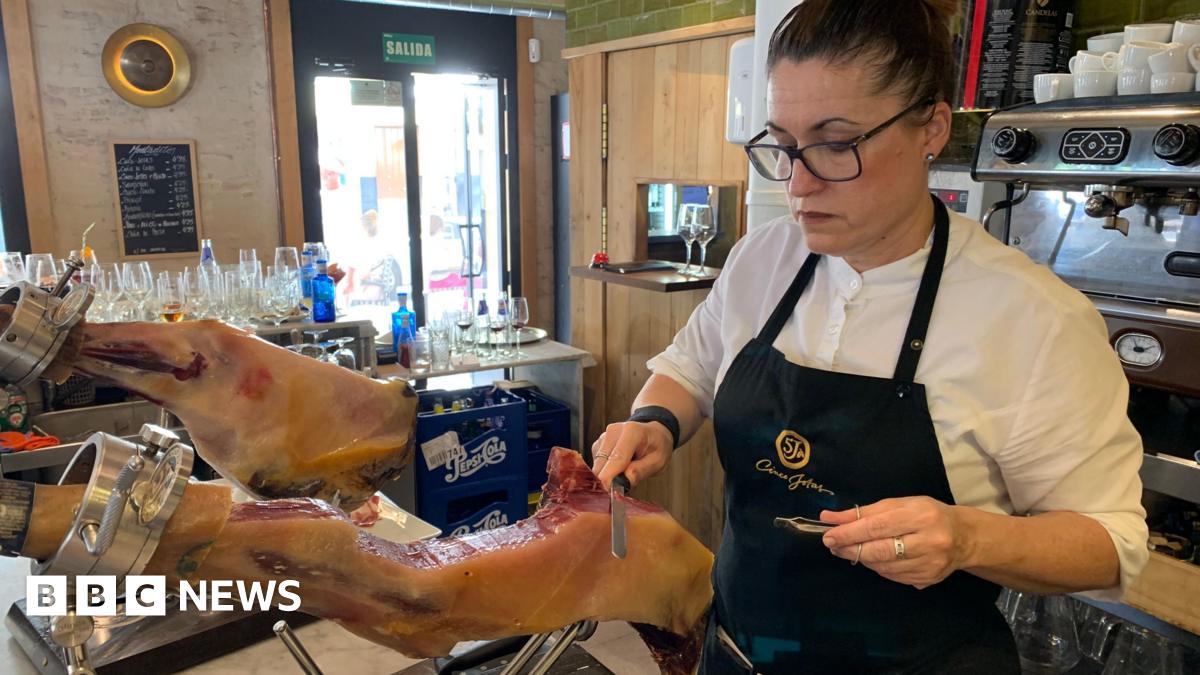For now, Spanish producers and exporters must hold their breath as EU negotiations take place with Washington. For Mr Pico Lapuente, a big cause of concern is the influence – or as he sees it, lack of influence – his sector wields within the European trade bloc.
“The negotiations representing the EU’s 27 countries are carried out by Brussels,” he says. “In these negotiations, industrial products have a much bigger influence than food.
“I wouldn’t like it if, in this negotiation, food products like olive oil were used as mere bargaining chips in order to get a better deal for Europe’s industrial products. That worries me. And I hope it doesn’t happen.”
A spokesperson for the European Commission told the BBC that in negotiations with the US it will act “in defence of European interests, protecting its workers, consumers and its industries”.
Jaime Fernández, of the Grupo Osborne, believes his industry could live with the 10% tariff that is currently in place without suffering too much fallout.
However, a 20% charge, he says would cause the industry “to reconsider how to accelerate growth in some other markets, which would eventually lead to the relocation of resources from the US”.
He says his company is already looking at alternative markets in which to invest, such as China, or proven European ham consumers such as France, Italy and Portugal.
Mr Díaz-Giménez says that is the logical response to the current uncertainty.
“If I was the CEO of any company with a high exposure to the United States… I would have sent my entire sales team to find other markets,” he says.
“And by now, they would have found them. There would be plan Bs and plan Cs, to make sure that we have reduced this exposure to the US.”
